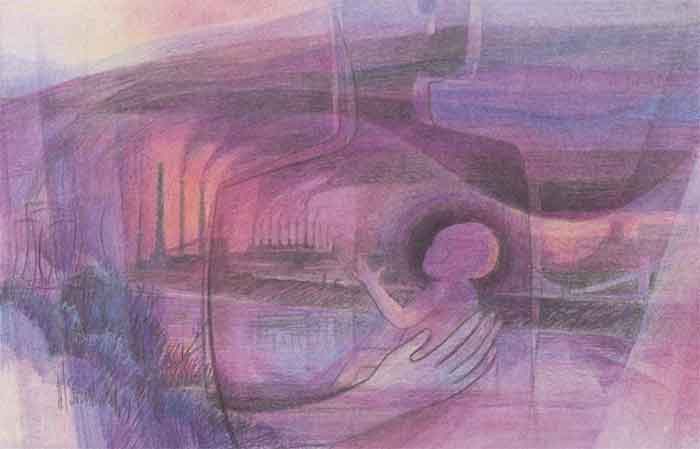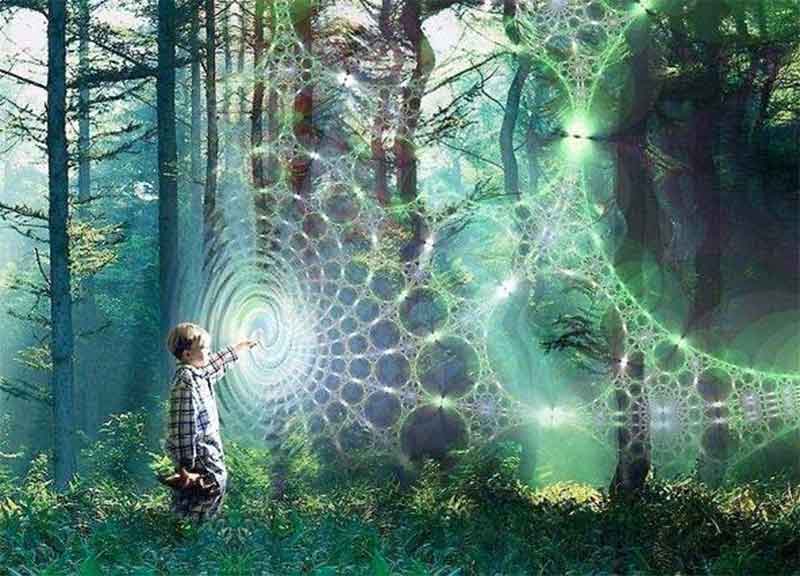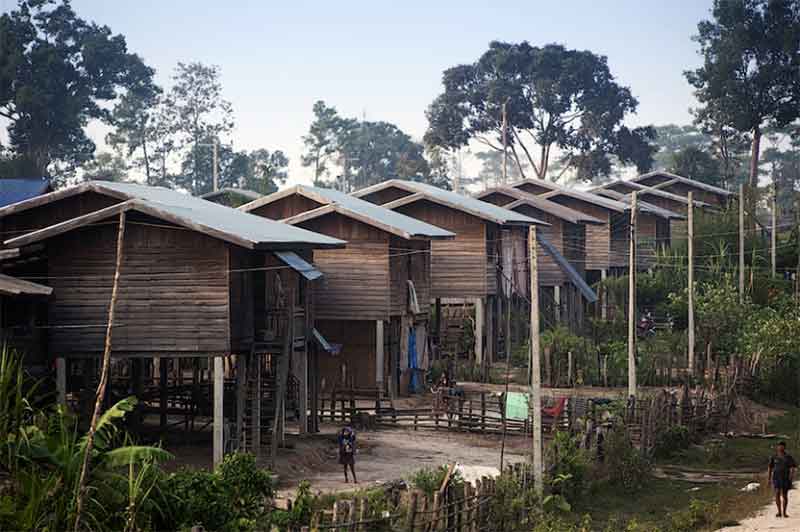
Courtesy of Ministry of the Arts
Ecological wisdom emanates from a deep awareness that, while humans are unique among all animals, they remain utterly dependent on their biophysical environment to sustain human life, and therefore must strive to live in harmony with the entire community of creation in order to ensure their own wellbeing. This is not what we are doing. We now face a situation of ecological overshoot due to population growth and consumption growth way beyond what the biosphere can regenerate. Unless we change course, we are paving the way for the extinction of the human species.
What is the root cause of this predicament? It is, without a doubt, the patriarchal mindset of domination by brute force that has prevailed since the inception of human history. It starts with imbalance in gender relations, whence all other forms of abuse of power derive. In his recently published book, Power ~ Limits and Prospects for Human Survival, page 83, Richard Heinberg states:
“One of the central problems this book proposes to address is how some humans became so much powerful than others. It is therefore crucial that we explore perhaps the oldest imbalance within our species — that between women and men.”
The current situation of ecological overshoot, all symptoms included, is the climax of the patriarchal age. Demographic imbalances, irresponsible parenthood, family breakdowns, social injustice, toxic pollution, biodiversity decimation, resource depletion, religious wars, resource wars, etc, etc, etc; all ultimately derive from abuse of power by humans. Such abuse became culturally pervasive after the agricultural revolution, and has been further enabled and exacerbated by the availability of cheap fossil fuels after the industrial revolution. Thus far, humans have been incapable of voluntarily moderating the use of power for the sake of peace and justice, let alone ensuring a viable human habitat for future generations.
What’s next? Systemic change:
Utopian? Perhaps, but this is the direction of the cultural transformation we need.
Systemic change (aka cultural evolution) is already happening, but the resistance is both subtle and ferocious. Subtle forms of resistance include rationalizations about upholding all traditional values without discerning between traditional values that are good and those that are bad for human ecology. Then there is the phenomenon of greenwashing, whereby ecologically detrimental production and consumption practices are disguised as “green” to keep the industrial system going at maximum speed without regard for side effects; thus we are seeing absurdities such as clean coal, sustainable aviation fuels, sustainable food, sustainable growth, and sustainable everything.
Other forms of resistance are more overt, and some are brutal. Authoritarian regimes are emerging in many countries, with leaders who are but cheap demagogues spewing divisive slogans and false promises of quick fixes. Trumpism is a case in point, now threatening to bring an ignominious end to the American experiment in democratic governance. China is aggressively forging ahead the Belt and Road infrastructure project, no matter what the ecological consequences. In Brazil and many other countries, indigenous people are being forcefully displaced (in some cases, even murdered) by land grabbers at the service of agribusiness, while huge amounts of food are wasted and never become accessible to poor people. Needless to say, wars are lethal to both humans and planet.
One form of resistance that is both subtle and ferocious emerges from the conflation of patriarchy and religion. Religious wars have destroyed human lives and entire natural systems for millennia. This is not the place to enumerate all the atrocities that have been committed “for the glory of God.” Religious patriarchy was already prevalent 3000 years ago (cf. Genesis 3:16) and has a long tail. The Islamic State is a recent reminder. Within the Christian tradition, some Protestant churches are already evolving, but women are still excluded from practically all roles of apostolic (hierarchical) authority in the Catholic and Orthodox churches. Patriarchal clericalism is a significant obstacle to following Jesus of Nazareth in today’s religious institutions; and also fosters continued abuses of power in the secular world, because fanatical religious indoctrination abets inflammatory slogans such as “America First” and “Make America Great Again” — euphemisms for “America Powerful” and “Make America Powerful Again.” In both religion and society, too much vertical power corrupts the use of power.
This is not the way of the Nazarene. Jesus never identified himself as a patriarch. He had the power to do miracles and cleanse the Temple, yet voluntarily chose to be powerless in dealing with the religious and secular powers of his time. Would Jesus, in today’s world, choose twelve men to represent the patriarchs of the twelve tribes of Israel? Now, in a post-patriarchal world, why should Christ be denied the right to call women to serve in apostolic succession? Why should Christianity continue to share responsibility for the ecological crisis? Why should the Catholic church remain a sexist institution?
Pope Francis has written:
“Following a period of irrational confidence in progress and human abilities, some sectors of society are now adopting a more critical approach. We see increasing sensitivity to the environment and the need to protect nature, along with a growing concern, both genuine and distressing, for what is happening to our planet. Let us review, however cursorily, those questions which are troubling us today and which we can no longer sweep under the carpet. Our goal is not to amass information or to satisfy curiosity, but rather to become painfully aware, to dare to turn what is happening to the world into our own personal suffering and thus to discover what each of us can do about it.” (Laudato Si’ 19)
There is something that the Catholic church could do: dismantle the patriarchal scaffolding of the Catholic hierarchy. It is ludicrous to keep insisting that the church has no power to ordain women to the ministerial priesthood. After 2000 years aborting female priestly vocations, the Theology of the Body again confirms what we always knew: that men and women share one and the same human nature and are fully homogeneous in their whole being (see, e.g., Glory of the Logos in the Flesh, page 689). Ordain women to the diaconate, the priesthood, and the episcopate. Doing so would be a significant contribution to the mission of the church in today’s world (young people no longer believe in patriarchal gender ideology) and encourage cultural evolution from too much reliance on vertical power to more reliance on voluntary moderation in using power and more collaborative horizontal power — a key proposal in Heinberg’s book that would be decisive in moving from a toxic patriarchal ecology to a healthy integral ecology
An integral ecology? What is an integral ecology?
An integral ecology is one in which humans embrace mutuality between them and the entire community of creation, thereby becoming one sacred community in the biosphere; one in which everything is connected for the common good. It is humanity embedded in the web of life, rather than indulging in any artificial sense of separation, superiority, and domination. The uniqueness of human nature becomes more fully unique, and integral human development becomes more fully integral, when humans live in harmony with the human habitat and care for each other and the integrity of the entire creation.
What’s next? Ecological conversion.
The transformation from a patriarchal ecology to an integral ecology requires ecological conversion. But religious patriarchy is an obstacle to ecological conversion, because it reinforces that archaic separation between body and soul, between man and women, between humans and nature. Thus any Catholic initiative for human development and ecological sanity is sabotaged from within by the patriarchal culture of the church.
This is a tragedy. Laudato si’ is the best guidance we have for an integral ecology. Fratelli Tutti is the best guidance we have for integral human development. The juxtaposition of the two encyclicals clearly establishes the tight coupling between social and ecological justice. However, as long as women are not ordained, the Laudato Si’ Platform is utopian and the credibility of the Laudato Si’ Movement is compromised. In other words:
|
It is hard to imagine that ecclesiastical patriarchy is what the Risen Christ wants for the church in the 21st century. Nevertheless, the Laudato Si’ Platform and the Laudato Si’ Movement are recommended as the best way for Catholics to engage in the existential struggle for the renewal of humanity and human civilization. The appendix provides a list of points for discernment on the ordination of women.
Appendix: Theology of the Body → Ordination of Women
The following points for meditation are based on study of the Theology of the Body and the Catechism of the Catholic Church:
1. Jesus Christ is the Redeemer, God made flesh, not a patriarch.
2. God the Father is a person, but not a male.
3. God the Son is a person, but was not a male before the incarnation.
4. God the Holy Spirit is a person, but not a male.
5. The Trinity is a communion of persons, not a patriarchate.
6. The “Son of Man” is God made flesh, not a patriarch.
7. All men and women are fully consubstantial in one and the same human nature.
8. Bodiliness and sexuality are not simply identical.
9. Being a body-soul is more fundamental for human nature than sexuality.
10. The body is a sacrament of the entire person, but is not the entire person.
11. The priest acts in the person of Christ, not in the masculinity of Christ.
12. All men and women are ontologically homogeneous in their whole being.
13. All men and women are of the same flesh in their somatic structure.
14. The complementarity of man and woman is enabled by their consubstantiality.
15. All men and women are fully consubstantial with Jesus Christ as to his humanity.
16. For the redemption, the masculinity of Jesus is as incidental as the color of his eyes.
17. Jesus Christ is the Bread of Life, not the male of life.
18. The substance of the Eucharist is BODY, not XX or XY chromosomes.
19. The substance of the Eucharist is FLESH, not testosterone.
20. The Church is “one, holy, catholic, and apostolic,” but not necessarily patriarchal.
21. Patriarchy is a disordered attachment to the supremacy of masculinity.
22. The Church is a communion of persons, not a patriarchate.
23. The Church is the body of Christ, not a woman with a male head.
24. The Virgin Mary is the “type” of the Church, not a woman with a male head.
25. The Virgin Mary precedes the sacramental economy as Mother of the Eucharist.
26. The Marian dimension of the Church precedes the apostolic dimension.
27. Apostolic succession is contingent on redeemed flesh, not on masculinity.
28. The nuptial mystery of Christ and the Church is not a patriarchal marriage.
29. Canon 1024 is an artificial contraceptive and abortifacient of female priestly vocations.
30. Catechism 1577 reduces the priesthood of the New Law to priesthood of the Old Law.
31. Catechism 1598 declares that ordaining only males is a choice, not a dogma.
32. The exclusively male priesthood makes invisible the “feminine genius” in Christ.
33. The Christian/Catholic/Orthodox faith is not intrinsically (dogmatically) patriarchal.
34. The conflation of patriarchal gender ideology and Christian doctrines is a disgrace.
35. Institutionalized ecclesiastical patriarchy is an abuse against Christ and the Church.
36. It is time to discard the patriarchal scaffolding that obscures the Catholic faith.
37. Male headship is an ancient but entirely artificial cultural custom, not natural law.
38. After the resurrection, nothing requires that apostolic succession be exclusively male.
39. The first “transubstantiation” in history happened in the Blessed Virgin Mary’s body.
40. Transubstantiation can happen via women ordained to act in persona Christi.
These points are further explained here, and the historical context is documented here. In brief, it is concluded that the exclusion of women from one of the sacraments is based on patriarchal theology, which in turn is a historical deformation of the Catholic ethos, not a matter of faith. Religious patriarchy exacerbates the human propensity to dominate others and nature by brute force, thereby contributing in a significant way to all manner of social and ecological injustice. Correcting this ugly deformation of the Catholic ethos is the great challenge (magna provocatione) for the church of the third millennium.
Luis T. Gutiérrez is the owner and editor of the Mother Pelican Journal.

















































